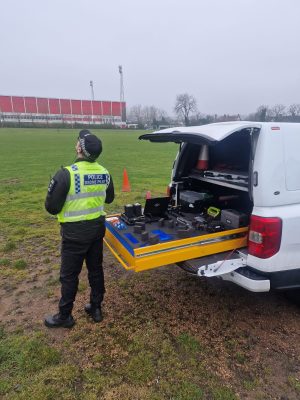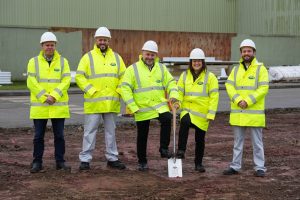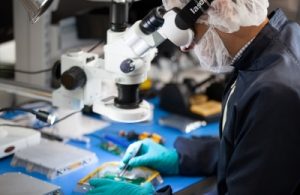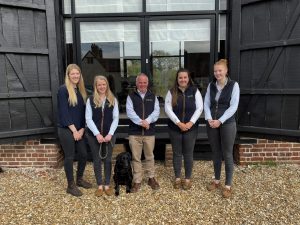Clean tech group showcases new EV battery recycling plant

Clean technology group Altilium welcomed the leader of Plymouth City Council to its new EV battery recycling plant as the company embarks on the next phase of its ambitious growth plans.
The cutting-edge facility, the first of its kind in the UK, is poised to play a crucial role in the city’s commitment to sustainability, creating new green jobs and attracting international investment to the region.
The 18,000 sq ft facility will use Altilium’s proprietary EcoCathode™ technology to recycle old lithium-ion batteries from electric vehicles (EVs), helping to reduce waste and recover the critical metals needed to power new EV batteries being built in the UK.
With growing demand for EVs, governments and businesses across the world are racing to secure supplies of critical minerals, including lithium and nickel. Developing a secure domestic supply chain for these materials, by recycling end-of-life EV batteries and Gigafactory waste, not only reduces our reliance on imported minerals but also results in lower carbon emissions, making EVs even greener.
Altilium’s new plant will have the capacity to recycle over 200,000 kg of batteries per year, enabling production of high volumes of cathode active materials (CAM), a key component in the manufacturing of EV batteries. These valuable materials will then be used for the production of new EV batteries in the UK and qualification by leading car manufacturers.
During the visit, Cllr Tudor Evans toured the plant and met with Altilium’s leadership team, including co-founder and COO, Dr Christian Marston, to discuss the company’s vision for a sustainable future and its alignment with Plymouth’s goals for economic growth and tackling climate change.
Plymouth City Council has pledged to make the city carbon neutral by 2030, exceeding the UK’s objective of net zero by 2050.
Evans commented: “This really hits all the right notes. A company that is expanding and creating jobs in Plymouth, that is at the cutting edge of finding ways to recycle EV batteries and helping to address issues that changing to new greener forms of transport create.
“It is great to see a company that’s really on board with our goals of working towards becoming carbon neutral and doing our bit to tackle climate change.”
Dr Marston commented: “We are honoured to welcome Councillor Evans to our new Act 2 facility and grateful for the continued support of Plymouth City Council and their commitment to sustainability. As a Devon-based clean technology group, we’re proud to be part of the South West’s emerging battery ecosystem and committed to investing in the region’s green economy. Our new facility not only represents an investment in advanced recycling technology but also in the local community.”
With lithium mining taking place in Cornwall and the UK’s largest gigafactory being built in Somerset, the South West is set to play a critical role in the UK’s drive to become a clean energy superpower.
Founded in 2020, Altilium is one of the fastest growing clean technology companies in the region, employing over 45 staff across its three locations in Plymouth and Tavistock. Earlier this year the company completed its series A funding round with a £9.3m investment from SQM Lithium Ventures, the corporate venture arm of the lithium business of Sociedad Quimica y Minera de Chile (SQM), one of the world’s
leading producers of battery-grade lithium.
Altilium’s EcoCathode recycling process has been independently validated by the University of Plymouth and proven in a scaled-up pilot operation, recovering over 95% of cathode metals from waste EV batteries, in a format that can be directly reused in battery manufacturing. Recovering these critical metals for reuse in new batteries can reduce greenhouse gas emissions by up to 74% and cut costs by 20%, compared to mined raw materials.
The company is now working with leading car manufacturers, including JLR and Nissan, to develop a circular economy for battery materials in the UK and to demonstrate the successful production and qualification of new batteries using recycled materials.
Located in Plymouth’s Estover Industrial Estate, the new recycling plant is expected to begin operations by the end of the year.








